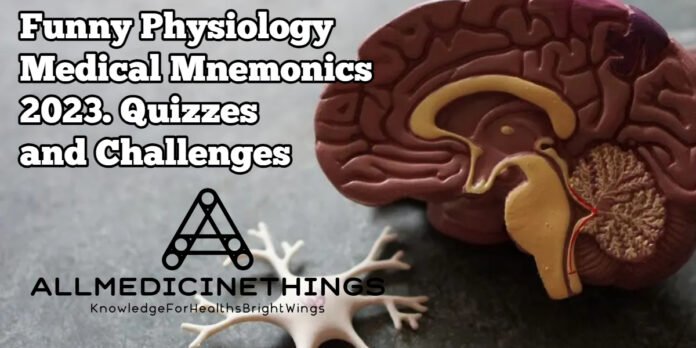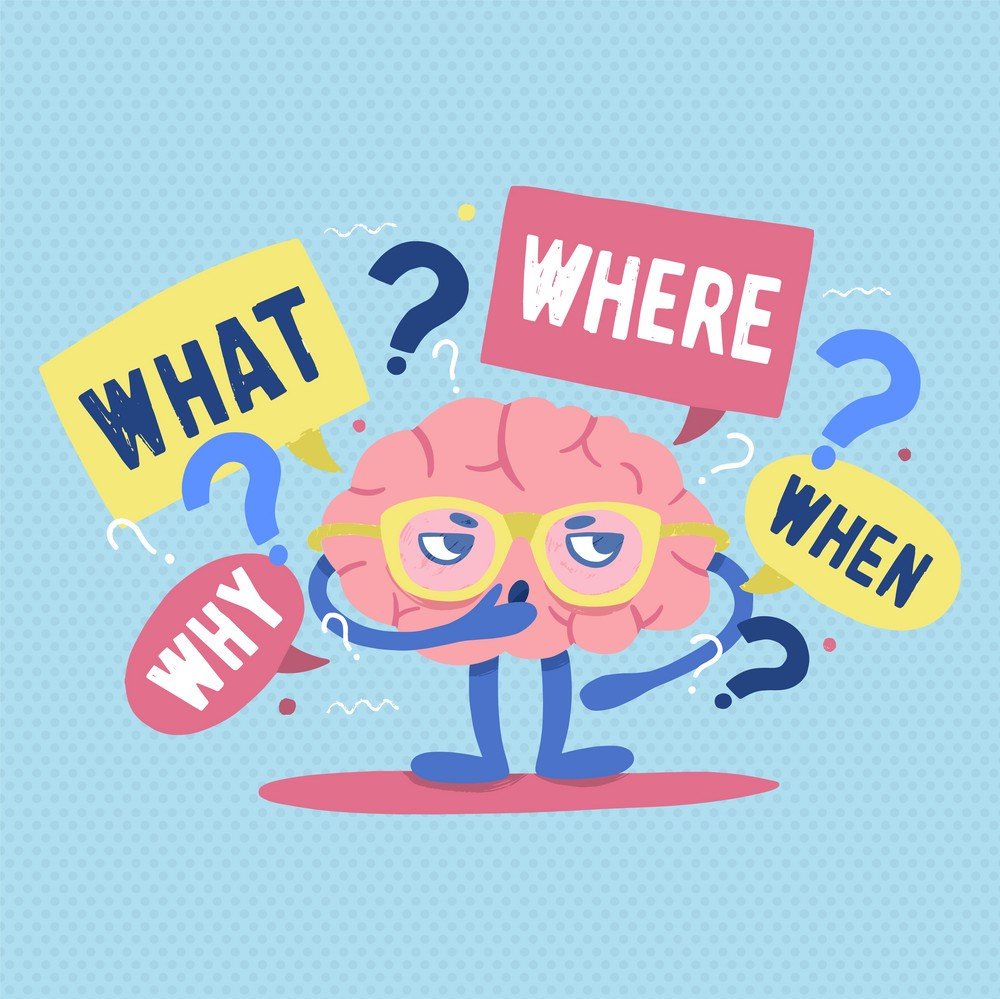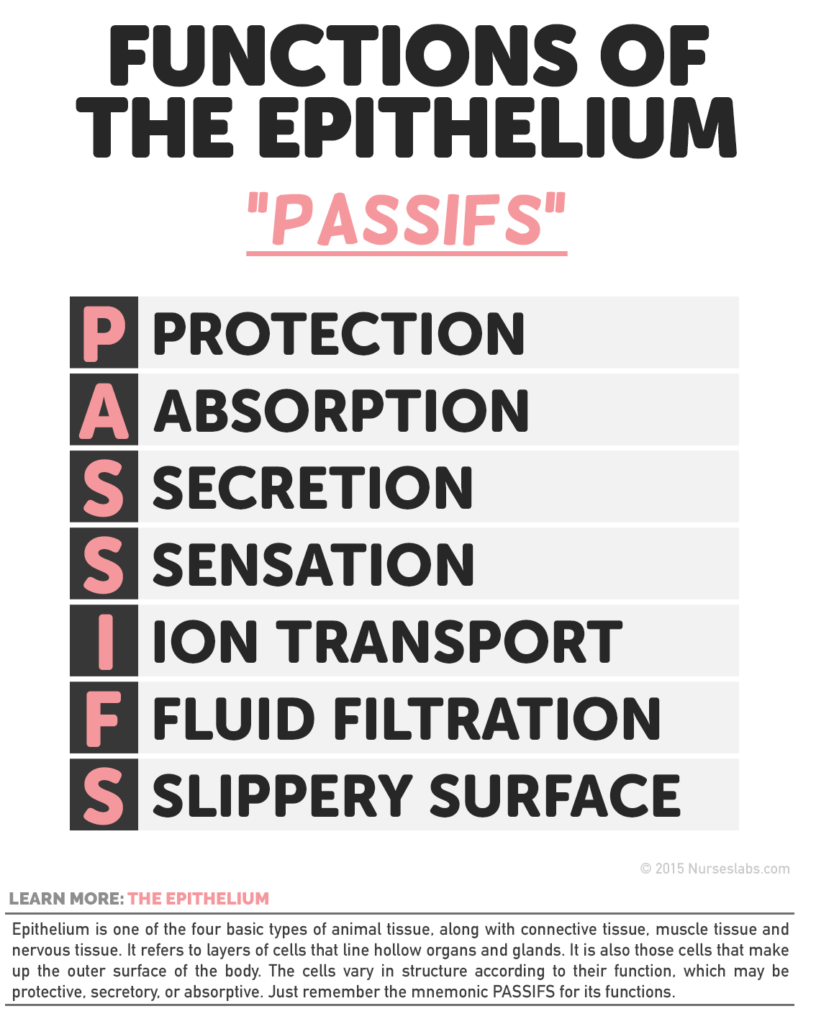Ah, the world of medicine: a treasure trove of complex terminology, intricate physiological processes, and seemingly endless lists. Whether you’re a student, a practitioner, or just a curious cat, mastering medical concepts is no small feat. That’s where mnemonics enter, stage left!
What are Mnemonics and why are they important?
Mnemonics, in the realm of learning, are essentially memory aids—simple tricks and tools that help our brains grab onto and retain information. Think of them as mental sticky notes. In the medical world, where you’re juggling everything from the names of the 206 bones in the human body to the intricate pathways of various metabolic processes, mnemonics are the trusty sidekicks that make the heroic act of remembering just a bit easier.
Humor and Memory: A match made in the hippocampus!
Now, what makes a mnemonic unforgettable? Humor! When we laugh or find something amusing, we’re more likely to remember it. It’s the brain’s way of saying, “Hey, this is fun! Let’s keep this one in the favorites folder.” Scientifically speaking, humor stimulates regions in our brain, particularly the hippocampus (the memory center), thereby anchoring the information more deeply.
So, why not combine the two? A sprinkle of medical knowledge, a dash of humor, and voilà! You’ve got yourself a recipe for success. Let’s dive into the world of “Funny Medical Mnemonics” and discover how a chuckle or two can make medical learning an absolute hoot!
Why Use Humorous Mnemonics?
The common room chatter, the intense cramming sessions, the bleary-eyed nights spent before an exam. We’ve all been there, right? But what if I told you there’s a way to turn those study groans into giggles? Enter: Humorous Mnemonics.
Benefits of Incorporating Humor into Learning:
- Retention Power-Up: Information wrapped in a joke or a funny phrase is less likely to be forgotten. The more absurd, the better! Our brains adore oddities, so turning a complex concept into a comical mnemonic can make all the difference.
- Stress Busters: Laughter is known to reduce cortisol levels, the primary stress hormone. So, why not let humor ease those pre-exam jitters?
- Engagement Boost: Let’s face it, a textbook can rarely compete with a comedy show. But if your study material makes you chuckle, you’re more likely to remain interested and stay on track. Plus, you’ll probably look forward to revisiting those funny mnemonics during revision.
- Confidence Builder: Every time you recall a humorous mnemonic successfully, it’s like getting a mini-win. And the more wins you collect, the more confident you become in your knowledge and recall abilities.
How Laughter Can Stimulate Recall:
Fun fact: When we laugh, our brain releases a cocktail of chemicals, including dopamine (the feel-good neurotransmitter). Dopamine plays a key role in motivation, pleasure, and more importantly, memory formation. So, every time you giggle at a mnemonic, you’re not just having fun; you’re chemically reinforcing the memory pathway.
In the realm of “Funny Medical Mnemonics”, our goal isn’t just to memorize; it’s to make the process joyful, interactive, and, most importantly, effective. As the adage goes, “Laughter is the best medicine.” And in this context, it might just be the best study buddy too!
Understanding the Power of Mnemonics
The Psychology of Mnemonics
Ticklish Mnemonics for Nerve-wracking Topics
Medicine is full of challenging concepts that can make your brain feel like it’s running a marathon. But what if we could give it a pair of roller skates instead? Let’s dive into some classic medical topics, spiced up with a dose of humor.
Cranial Nerves:
Medical students everywhere dread the moment they need to remember the order of the 12 cranial nerves. But fear not, because we’ve got a mnemonic that not only serves its purpose but might also make you giggle in the process!
Mnemonic:
“Oh, Oh, Oh! To Touch And Feel… (ahem!) Very Green Vegetables, AH!”
Decoded:
- Olfactory
- Optic
- Oculomotor
- Trochlear
- Trigeminal
- Abducens
- Facial
- Vestibulocochlear (That’s the ‘ahem!’ part, because it’s such a mouthful)
- Glossopharyngeal
- Vagus
- Accessory
- Hypoglossal
Heart’s Conduction System:
The heart isn’t just for love poems and Valentine’s Day cards. It’s a meticulously designed pump with an electrical system to match. Let’s electrify your memory with a sunny mnemonic!
Mnemonic:
“Kids Play Catch On A Sunny Sunday”
Decoded:
- Knode (SA node)
- Pathway (Atrial pathways)
- Cnode (AV node)
- Of (Bundle of His)
- Arms (Right and Left bundle branches)
- Suburbs (Purkinje fibers)
Muscle Hierarchy:
From the most massive muscle groups to the tiniest fibers, this mnemonic will have you flexing your memory muscles in no time!
Mnemonic:
“Muscles Say Stop Making So Many Pies”
Decoded:
- Muscle (e.g., Bicep)
- Septum (Muscle Fascicle)
- Sheath (Perimysium)
- Muscle fiber (Muscle Cell)
- Sheath (Endomysium)
- Myofibril
- Protein filaments (Actin and Myosin)
Remember, the quirkier and sillier the mnemonic, the better. It’s all about making those tough-to-tackle topics just a little bit more approachable, and a lot more memorable! So next time you’re struggling with a challenging topic, try turning it into a fun and playful memory aid.
Laughing Your Way Through Difficult Processes
Biology is a dance of processes and pathways. And let’s be honest, sometimes these can seem as complicated as learning the choreography for a Broadway musical! So, why not add a little jazz hand flair to those daunting topics?
Renal Physiology:
The kidneys aren’t just bean-shaped organs sitting pretty. They’re filtration powerhouses, making sure our bodily fluids are in tip-top shape. Dive into the world of nephrons and renal processes with this quirky mnemonic:
Mnemonic:
“Fridays Never Get Pretty”
Decoded:
- Filtration (at the Bowman’s capsule)
- Nephron (where the real action happens!)
- Glomerulus (where blood is first filtered)
- Peritubular capillaries (where reabsorption and secretion take place)
Digestive System:
Digestion, from that first bite of pizza to its… departure, is a marvel of coordination. Let’s simplify the journey of food with a mnemonic that’s sure to make you hungry:
Mnemonic:
“Salad, Pizza, Ice Cream, Exit”
Decoded:
- Salivary glands (begin digestion in the mouth)
- Pancreas (produces digestive enzymes)
- Intestines (both small and large, where digestion and absorption mainly occur)
- Exit (well, you get the idea!)
Recalling these processes can be a mouthful (pun intended). But by wrapping them up in humor, we make them a lot more digestible (and yes, that pun was intended too). After all, who wouldn’t want to remember a digestive process that involves salad, pizza, and ice cream?
In the grand dance of physiology, mnemonics are your choreography cheat sheets. So, whenever you feel lost amidst the complex routines of the body’s systems, just tap into your “Funny Medical Mnemonics” for a refresher, complete with a side of chuckles!
Funny Memory Tips and Tricks
So, you’re on board the ‘humorous mnemonics’ train, but maybe you’re wondering, “How can I create my own knee-slapping memory aids?” Well, you’re in luck! Here are some tips and tricks to make any topic comically memorable.
Why “Silly” Makes It Sticky?
Remember when you chuckled at the most absurd jokes as a kid? The silliest things often stick around in our minds the longest. That’s because our brains love novelty. When presented with out-of-the-ordinary, weird, or downright funny information, our grey matter perks up, making retention easier. The crazier your mnemonic, the better!
Using Rhymes and Ridiculous Imagery:
Turn to the world of Dr. Seuss for inspiration. Rhymes are catchy, easy to remember, and have a rhythm to them. Pair a rhyme with an outrageous mental image, and you’ve got yourself a mnemonic that’s as memorable as your first bike ride (or that time you tried to sing opera in the shower).
Example: Trying to remember the parts of the cell?
Mnemonic: “Mitochondria’s Might, Lysosomes Bite, and Endoplasmic Reticulum is Outta Sight!”
Visualize a mitochondria flexing its muscles, a lysosome munching on a sandwich, and the endoplasmic reticulum wearing sunglasses and jamming to disco tunes.
Making Personal Connections:
Your experiences are unique, and so should be your mnemonics. If you’re a fan of, say, Marvel superheroes, use them! Need to remember a list of bacteria? Assign each one a superhero or villain counterpart based on their characteristics. It’s personal, fun, and sure to make your study sessions more lively.
Example: If you think of E. coli as an ‘everyday bacteria’ (because it’s commonly discussed), you might imagine it as Spider-Man – your friendly neighborhood superhero.
In essence, the art of creating and using funny mnemonics is all about letting your imagination run wild and free. It’s about turning the act of memorizing from a chore into a joy. So, the next time you come across a complex concept or a challenging list, remember: a pinch of humor can be the secret ingredient that turns your study stew into a gourmet meal for the mind!
Conclusion
Diving deep into the waters of medical knowledge can sometimes feel like swimming against a strong current. But what if you had a floatie? Something that not only keeps you buoyant but also makes the journey enjoyable. That’s precisely what “Funny Medical Mnemonics” offer.
The Power of Humor in Learning:
We’ve all heard that laughter is universal. It breaks barriers, lightens moods, and now, as we’ve discovered, can be an invaluable tool in the world of learning. When we pair humor with memory, the results are both effective and enjoyable. Complex topics transform from towering walls into delightful puzzles, waiting to be pieced together with the joy of laughter.
Make It Personal, Make It Funny:
Don’t shy away from creating your own mnemonics. The more tailored they are to your experiences and sense of humor, the better. Maybe you’ll think of the digestive process as a foodie’s tour of Paris or visualize DNA replication as a dance-off. The possibilities are endless and only limited by your imagination.
Encouragement to Make Personal Funny Mnemonics:
Step out of the rigid boundaries of traditional learning. Embrace the goofy, the silly, and the downright ridiculous. Craft mnemonics that resonate with you, that make you chuckle, and most importantly, that stick.
In the grand tapestry of knowledge, Funny Medical Mnemonics are the vibrant threads that bring color to the complex patterns. They make the process of weaving information together less daunting and a lot more delightful.
As you continue your journey in the vast realm of medicine, remember that every challenge can be faced with a smile, every concept can be approached with humor, and every piece of knowledge can be anchored with a hearty laugh. Because, after all, in the world of learning and beyond, laughter truly is the best medicine.
Appendix: More Funny Medical Mnemonics
For those who can’t get enough of hilarious mnemonics, this appendix is for you. Here’s a quick list of additional humorous mnemonics across various medical topics to keep the chuckles going, also a link for medical facts if you are into those.
MedicalNewsToday
Bones of the Wrist (Carpals):
Mnemonic:
“Some Lovers Try Positions That They Can’t Handle.”
Decoded:
- Scaphoid
- Lunate
- Triquetrum
- Pisiform
- Trapezium
- Trapezoid
- Capitate
- Hamate
Stages of Mitosis:
Mnemonic:
“I Passed My Anatomy Test.”
Decoded:
- Interphase
- Prophase
- Metaphase
- Anaphase
- Telophase
Types of White Blood Cells:
Mnemonic:
“Never Let Monkeys Eat Bananas.”
Decoded:
- Neutrophils
- Lymphocytes
- Monocytes
- Eosinophils
- Basophils
Branches of the Facial Nerve:
Mnemonic:
“To Zanzibar By Motor Car.”
Decoded:
- Temporal
- Zygomatic
- Buccal
- Mandibular
- Cervical
These are just the tip of the iceberg. Mnemonics can be found or created for nearly every medical topic. It’s an open invitation to mix creativity with medicine, ensuring that learning becomes not just an obligation, but a delightful experience.
Quizzes & Games: “Test Your Mnemonic Might!”
What better way to test your newly acquired knowledge of funny medical mnemonics than with some quizzes and games! Ready to challenge yourself?
1. Match the Mnemonic!
Instructions: Match each mnemonic to its corresponding medical term or sequence.
Mnemonics:
a. “Some Lovers Try Positions That They Can’t Handle”
b. “Never Let Monkeys Eat Bananas”
c. “To Zanzibar By Motor Car”
d. “I Passed My Anatomy Test”
Terms:
- Branches of the Facial Nerve
- Types of White Blood Cells
- Stages of Mitosis
- Bones of the Wrist
Answers:
a-4, b-2, c-1, d-3
2. Fill-in-the-Blanks: Decoding the Mnemonic
Instructions: Use the given mnemonic to fill in the blanks.
Mnemonic:
“Salad, Pizza, Ice Cream, Exit”
Blanks:
- S______ glands (begin digestion in the mouth)
- P______ (produces digestive enzymes)
- I_________ (both small and large, where digestion and absorption mainly occur)
- E______ (well, you get the idea!)
Answers:
- Salivary, Pancreas, Intestines, Exit
3. Mnemonic Memory Challenge
Instructions:
Given a set of medical terms, create your own hilarious mnemonic!
Terms:
- Temporal
- Occipital
- Parietal
- Frontal
Sample Answer:
“Totally Over Pancake Fridays.”
4. Drag and Drop: Mnemonic Madness
Instructions:
Drag each term to its appropriate spot in the mnemonic sequence.
Mnemonic:
“____, _____, Ice Cream, Exit”
Terms:
- Intestines
- Salivary glands
- Pancreas
Answers:
Salivary glands, Pancreas, Ice Cream, Exit
Challenge your friends and send them here. Comment your scores and answers in the comments down below. Lets make this fun. Add your own mnemonics down below too if you have any better ones. Plus if you are studying alot and would like to move to another country. Here are some article you might find interesting.
Thinking to Consider USMLE in 2023? Look at this first
Moving to UK as a doctor with PLAB in 2023 [Everything Guide]




![Most Entertaining Pharmacology Mnemonics [2023]](https://allmedicinethings.com/wp-content/uploads/2023/08/Pharmacology-Mnemonics-1-218x150.jpg)
